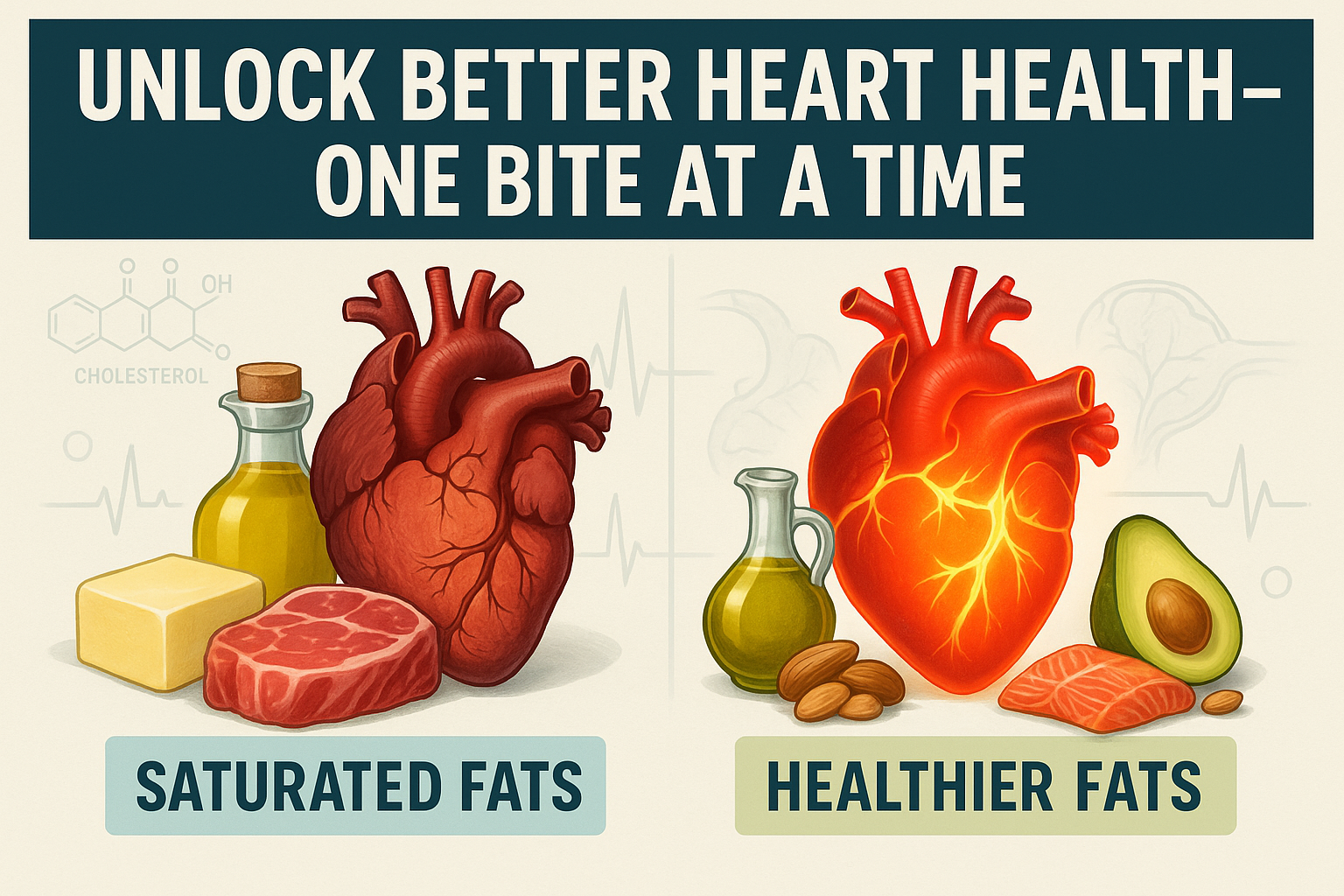In a landmark Cochrane systematic review, researchers analyzed 15 randomized controlled trials comprising approximately 59,000 participants—both healthy individuals and those with existing cardiovascular disease—to determine how reducing dietary saturated fat (SAFA) influences heart health when maintained for at least two yearseuropepmc.org+8pubmed.ncbi.nlm.nih.gov+8academia.edu+8.
🔍 Key Insights and Findings
- Significant Reduction in Cardiovascular Events
Lowering saturated fat intake led to a 21% reduction in major cardiovascular outcomes—including heart attacks and strokes—with a risk ratio of 0.79 (95% CI: 0.66–0.93). This constitutes high-quality, moderate-certainty evidence en.wikipedia.org+6pubmed.ncbi.nlm.nih.gov+6researchgate.net+6. - Clear Clinical Impact
- In primary prevention (participants without heart disease), 1 in every 56 individuals avoiding a major cardiovascular event over ~4 years.
- In secondary prevention (those with existing disease), the ratio improves to 1 in 32researchgate.net+6pubmed.ncbi.nlm.nih.gov+6researchgate.net+6.
- Dose-Response Relationship
Greater reductions in saturated fat—driven by larger drops in serum cholesterol—were associated with stronger cardiovascular benefits cochrane.orgen.wikipedia.org+9pubmed.ncbi.nlm.nih.gov+9researchgate.net+9.
🍽️ What Replacements Work?
- Polyunsaturated Fats (PUFAs): Substituting SAFA with PUFAs (e.g., vegetable oils, nuts, seeds) was consistently beneficial.
- Carbohydrates: Replacing SAFA with starches or complex carbs also proved effective.
- Monounsaturated Fats (MUFAs) & Proteins: Evidence remains insufficient to draw definitive conclusionshealthline.com+11pubmed.ncbi.nlm.nih.gov+11academia.edu+11researchgate.net+1academia.edu+1.
⛔ What Didn’t Change Significantly?
- All-cause mortality: Minimal effect (RR 0.96; 95% CI: 0.90–1.03)frontiersin.org+4pubmed.ncbi.nlm.nih.gov+4researchgate.net+4.
- Cardiovascular mortality and non-fatal heart attack: No clear evidence of reduction, with wide confidence intervals academia.edu+4pubmed.ncbi.nlm.nih.gov+4researchgate.net+4.
- Stroke, diabetes, cancer, blood pressure, HDL, triglycerides: No strong or consistent effects observedacademia.edu+3pubmed.ncbi.nlm.nih.gov+3researchgate.net+3.
✅ Safety and Secondary Benefits
- No harmful side effects were identified; nutritional interventions proved safefrontiersin.org+9pubmed.ncbi.nlm.nih.gov+9academia.edu+9.
- Minor improvements in BMI, body weight, total cholesterol, and LDL were noted, supporting cardiovascular safety .
🧭 Public Health & Strategic Implications
This meta-analysis confirms longstanding dietary guidelines: targeted reduction of saturated fats, especially when replaced with healthier fats, yields measurable cardiovascular benefits—even if direct impacts on mortality are modest. The stronger effects in secondary prevention highlight its value for individuals with existing disease. These findings align with global health authorities, such as WHO and AHA, which advocate replacing saturated fats with unsaturated alternatives researchgate.net+3pubmed.ncbi.nlm.nih.gov+3researchgate.net+3.
💡 Promotional Angle
📢 Unlock Better Heart Health—One Bite at a Time
Highlighting that simple dietary swaps (e.g., butter → olive oil, red meat → salmon or nuts) can prevent a heart event in every 32 at-risk individuals or every 56 healthy adults over four years, this message is both powerful and action-driven. Clinically backed yet emotionally engaging, this narrative motivates dietary change and positions the article as essential reading for wellness-focused audiences.
Integrate this into health blogs, lifestyle media, or marketing materials to attract readership and engagement by combining evidence-based authority with a call-to-action narrative.


